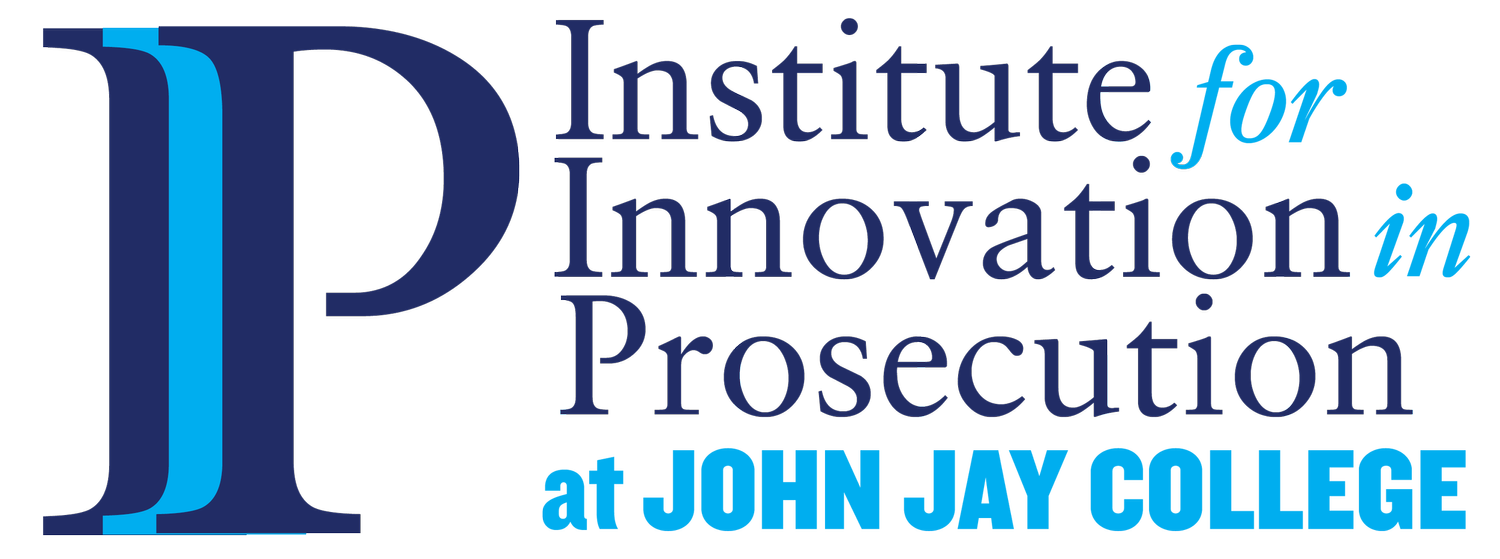Prosecutors, Incarcerees Find Common Language in Six-Week NYC Program
ShanaKay Salmon | The Crime Report | February 28, 2020
Incarcerated individuals and Assistant DAs marked the end of a joint course in justice innovation with a graduation ceremony at John Jay College last month. Photos by Shanakay Salmon
Can prosecutors learn from the people they send to prison?
The latest round of an innovative New York City program that brings together Assistant District Attorneys and incarcerees suggests they can.
“Few things have more potential to address the urgent challenges of our criminal justice system than thoughtful engagement between the people closest to the problems,” says Lucy Lang, director of the Institute for Innovation in Prosecution (IIP) at John Jay College of Criminal Justice.
More the 120 New Yorkers have completed the Inside Criminal Justice Program so far. The newest “class” of 41 participants graduated at a ceremony last month.
The program was created by Lang and Manhattan District Attorney Cyrus Vance.
Attendees at the latest six-week program included representatives from the Manhattan District Attorney’s Office, residents of the Queensboro Correctional Facility, and the Edgecombe Correctional Facility—representing the course’s first cohort of incarcerated women.
The program is a partnership between the IIP, the Manhattan DA Academy, the Columbia University Center for Justice, and the New York State Department of Corrections and Community Supervision (DOCCS).
The Queensboro class was taught by Columbia University Center for Justice Director Geraldine Downey and NYPD Deputy Commissioner for Community Partnerships Chauncey Parker. The Edgecombe class was taught by Columbia University Law Lecturer Frederica Coppola and Assistant District Attorney Luis Morales.
Over the six-week course, students learned about leading sociological theories in community wellbeing, racial justice, the shortcomings of the system, and possible policy interventions for a fairer justice system.
As their final project, the prosecutor-students and incarceree-students worked in small groups together to create criminal justice policy proposals that were presented at the graduation.
The policy proposals ranged from informational resources for people entering prison, to educational opportunities for incarcerated people, to employment readiness, to providing less stigmatizing forms of identification for formerly or currently justice-involved New Yorkers.
Both sides described it as a revealing experience.
“The crux of this program is taking people who are impacted very directly and indirectly by the criminal justice system and prosecutors, who have an incredible impact on the system, and having them sit down and have a dialogue about the criminal justice system generally and society more broadly,” Deputy Assistant Manhattan DA McMahon told the audience.
“What its needs are, what its flaws are, where it can be impacted, and how they can help.”
During the graduation exercise, students told stories of their involvement with the criminal justice system and argued for policy interventions that would empower similarly-situated people to succeed.
Students from the Edgecombe class offered a set of ideas uniquely tailored to the under-addressed needs of incarcerated women. One student expressed her appreciation for the program and her reawakened love for learning. Another discussed her future goals and ambition, sighting newfound friendships formed within the program as a catalyst.
During the graduation exercise, students told stories of their involvement with the criminal justice system and argued for policy interventions that would empower similarly-situated people to succeed.
“This yearning for the breath of freedom; the pain of separation cuts so deep,” said a student from Queensboro in a poem she recited during the ceremony.
“The Inside Criminal Justice program has helped me so much. It’s a time for self-reflection, rehabilitation… trying to come to terms with the root issue: my criminal and negative thinking,” said Jerrel Gantt, a graduate of the program.
“Once you do all of this you can use it as a testimony to then pay it forward for someone else. To use your negatives as a positive and to actually help others that are in similar situations and hope for a brighter day.”
The program plans to expand its model of constructively bringing together those who would otherwise never speak to one another outside of a courtroom by continually emphasizing the potential for learning through proximity as a means to effect sorely-needed change in criminal justice, organizers said.
Shanakay Salmon is Creative Associate at the Institute of Innovation in Prosecution.To hear more about the Inside Criminal Justice program, check out the Inside Criminal Justice episode of the New Thinking podcast hosted by Matt Watkins of the Center for Court Innovation. If you are interested in hosting the ICJ program in your jurisdiction, please email iip_johnjay@prosecution.org.
Link to article: https://thecrimereport.org/2020/02/28/prosecutors-incarcerees-find-common-language-in-six-week-nyc-program/
